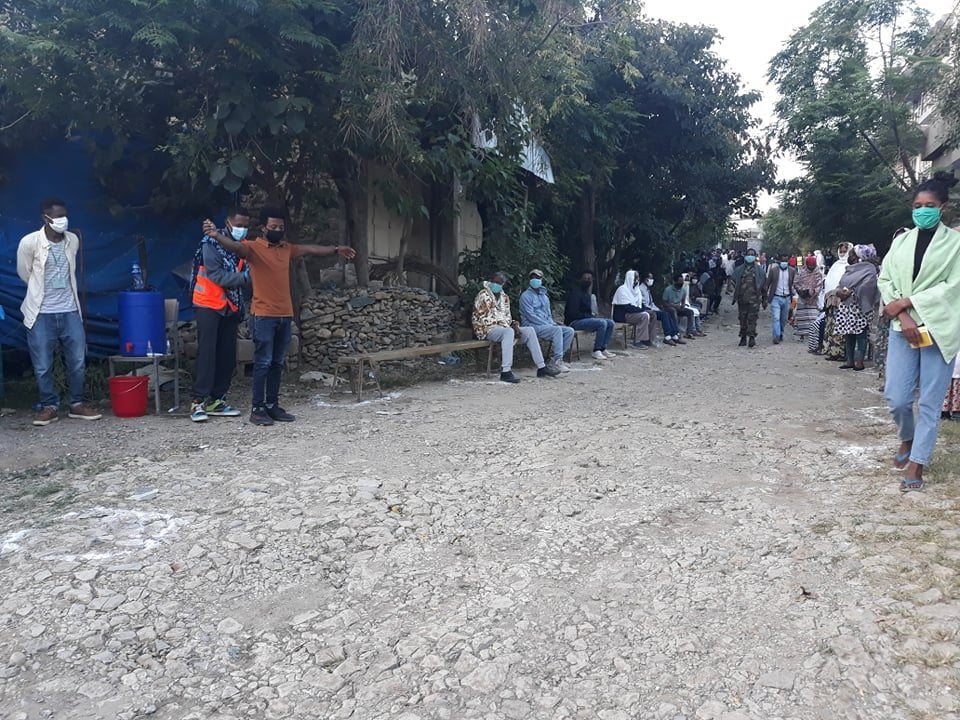
Radar | Nov 19,2022
Nov 16 , 2019
By Jayati Ghosh
The threat of water wars, as a result of environmental destruction, is only drawing nearer. For many in Africa, Asia and elsewhere, it has already arrived, writes Jayati Ghosh, professor of economics at Jawaharlal Nehru University in New Delhi, executive secretary of International Development Economics Associates and a member of the Independent Commission for the Reform of International Corporate Taxation. This article first appeared on Project Syndicate.
The dangers of environmental pollution receive a lot of attention nowadays, particularly in the developing world, and with good reason. Air quality indices are dismal and worsening in many places, with India, in particular, facing an acute public-health emergency. But as serious as the pollution problem is, it must not be allowed to obscure another incipient environmental catastrophe, and a potential source of future conflict: lack of access to clean water.
We may live on a “blue planet,” but less than three percent of all of our water is fresh, and much of it is inaccessible (for example, because it is locked in glaciers). Since 1960, the amount of available freshwater per capita has declined by more than half, leaving over 40pc of the world’s population facing water stress. By 2030, demand for fresh water will exceed supply by an estimated 40pc.
With nearly two-thirds of fresh water coming from rivers and lakes that cross national borders, intensifying water stress fuels a vicious circle in which countries compete for supplies, leading to greater stress and more competition. Today, hundreds of international water agreements are coming under pressure.
China, India and Bangladesh are locked in a dispute over the Brahmaputra, one of Asia’s largest rivers, with China and India actively constructing dams that have raised fears of water diversion. India’s government has used water-flow diversion to punish Pakistan for terrorist attacks. Dam-building on the Nile by Ethiopia has raised the ire of downstream Egypt.
And cross-border conflicts are just the beginning. Water-related tensions are on the rise within countries as well, between rural and urban communities, and among agricultural, industrial and household consumers. Last year, water scarcity fueled conflicts in parts of eastern Africa, such as Kenya, which has a history of tribal clashes over access to water.
In fact, there are long histories of conflict over the waters of many major rivers, including the Nile, the Amazon, the Mekong and the Danube. But the severity and frequency of such conflicts are set to increase, as climate change alters rainfall patterns, leading to more frequent, intense and prolonged droughts and floods.
Making matters worse, dwindling water reserves are increasingly contaminated by industrial pollutants, plastics, refuse and human waste. In middle-income countries, less than one-third of wastewater is treated; in low-income countries, the share is much smaller. Roughly 1.8 billion people get their drinking water from feces-contaminated sources. The depletion of aquifers and inadequate investment in water infrastructure are exacerbating these problems.
Water stress affects everyone, but the agricultural sector – which accounts for 70pc of all water consumption globally and as much as 90pc in the least-developed countries – is particularly vulnerable to constrained supplies. Lack of water makes it difficult to keep livestock, since every drop has to be preserved for crops or human consumption.
Urban areas are also headed for disaster. Last year, Cape Town, South Africa, faced such severe water shortages that it began preparations for a “day zero,” when the municipal water supply would be shut off. (Thanks to supply restrictions and other government measures, that day never came.) Similarly, Mexico City has struggled with a water crisis for years.
Indian metropolises are lurching toward even bigger catastrophes. A 2018 government report warned that 21 cities (including the capital, Delhi, and the information-technology hub Bengaluru) would reach zero groundwater levels by next year, affecting at least 100 million people.
As with climate change, the most severe consequences of water stress disproportionately affect those in the world’s poorest regions – especially Africa and South and Central Asia – who contributed least to the problem. In one part of rural Maharashtra, India, women and girls walk up to 25Km a day to collect drinking water. In other villages, as local wells run dry, households have had to designate a member to be on full-time water collection duty. Wealthier families might pay someone else to do the job, but most households do not have that luxury.
Meanwhile, the advanced economies not only avoid many of the consequences of water stress (at least for now), they also maintain the lifestyle excesses that have propelled climate change and environmental degradation, including water depletion. Rice cultivation is often cited as a major water guzzler, but one kilogram of beef requires five times more water to produce than a kilogram of rice, and 130 times more than a kilogram of potatoes. And since agricultural crops account for a significant share of many developing countries’ exports, these countries are, in a sense, exporting the limited supply of water they have.
Moreover, current land grabs in Africa are actually about water, with foreign investors targeting areas with big rivers, large lakes, wetlands and groundwater, and thus with high agricultural potential and biogenetic value. As it stands, less than 10pc of Africa’s irrigation potential is being used.
In 2015, United Nations member states adopted the Sustainable Development Goals, which include an imperative to “ensure availability and sustainable management of water and sanitation for all.” Yet in the last four years, matters have deteriorated significantly. The international community might be able to fool itself for a while – as it has proved so adept at doing, not least with regard to environmental destruction – but the threat of water wars is only drawing nearer. For many in Africa, Asia and elsewhere, it has already arrived.
PUBLISHED ON
Nov 16,2019 [ VOL
20 , NO
1020]


Radar | Nov 19,2022

Editorial | Jun 20,2020

Radar | Apr 30,2024

Photo Gallery | Sep 09,2020

Fortune News | Feb 29,2020

My Opinion | 131590 Views | Aug 14,2021

My Opinion | 127946 Views | Aug 21,2021

My Opinion | 125921 Views | Sep 10,2021

My Opinion | 123545 Views | Aug 07,2021

Dec 22 , 2024 . By TIZITA SHEWAFERAW
Charged with transforming colossal state-owned enterprises into modern and competitiv...

Aug 18 , 2024 . By AKSAH ITALO
Although predictable Yonas Zerihun's job in the ride-hailing service is not immune to...

Jul 28 , 2024 . By TIZITA SHEWAFERAW
Unhabitual, perhaps too many, Samuel Gebreyohannes, 38, used to occasionally enjoy a couple of beers at breakfast. However, he recently swit...

Jul 13 , 2024 . By AKSAH ITALO
Investors who rely on tractors, trucks, and field vehicles for commuting, transporting commodities, and f...

Jun 28 , 2025
Meseret Damtie, the assertive auditor general, has never been shy about naming names...

Jun 21 , 2025
A well-worn adage says, “Budget is not destiny, but it is direction.” Examining t...

Jun 14 , 2025
Yet again, the Horn of Africa is bracing for trouble. A region already frayed by wars...

Jun 7 , 2025
Few promises shine brighter in Addis Abeba than the pledge of a roof for every family...

Jun 29 , 2025
Addis Abeba's first rains have coincided with a sweeping rise in private school tuition, prompting the city's education...

Jun 29 , 2025 . By BEZAWIT HULUAGER
Central Bank Governor Mamo Mihretu claimed a bold reconfiguration of monetary policy...

Jun 29 , 2025 . By BEZAWIT HULUAGER
The federal government is betting on a sweeping overhaul of the driver licensing regi...

Jun 29 , 2025 . By NAHOM AYELE
Gadaa Bank has listed 1.2 million shares on the Ethiopian Securities Exchange (ESX),...